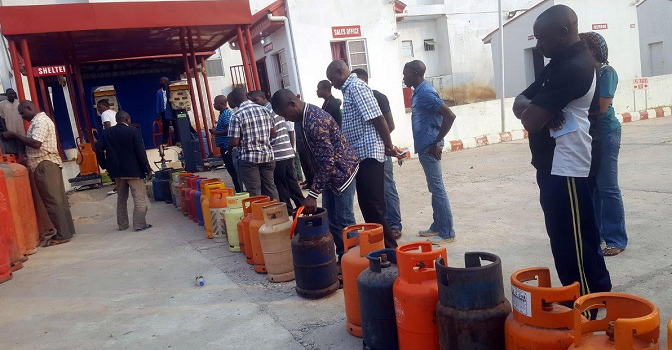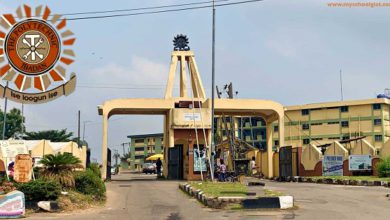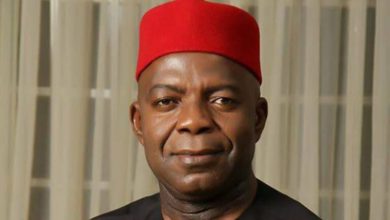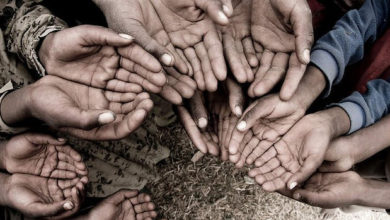
FG plans cooking gas export ban to crash price
The Federal Government is to stop the exportation of Liquefied Petroleum Gas, popularly called cooking gas, in a bid to increase its volume domestically so as to warrant a crash in price.
It stated on Thursday that LPG producers in Nigeria and key stakeholders in the industry had been told to stop exporting the commodity out of Nigeria, following the recent jump in the cost of cooking gas.
Although the volume of LPG consumption in Nigeria depends on the specific timeframe, figures obtained from the Nigerian Midstream Downstream Petroleum Regulatory Authority indicated that in 2022, the total cooking gas consumption across the country was 1.4 million metric tonnes.
Data from the agency put total domestic production during the review period as 600,000MT, while imports accounted for 800,000MT.
In 2021, total consumption was estimated at around 800,000MT, as domestic production was about 300,000MT, while the volume that was imported in that year was put at 500,000MT.
Cooking gas consumption has been increasing significantly, with ambitious targets to reach five million metric tonnes by 2029, as LPG dealers stated that though Nigeria exports the commodity, the country relies heavily on imports to meet domestic demand.
This implies that the Federal Government could stop the export of over 600,000MT of cooking gas based on its drive to crash the price of the commodity locally.
Findings showed that the cost of refilling a 12.5kg cylinder of cooking gas in Abuja, Lagos, Kano and some other states had climbed to about N18,000. It was specifically N17,500 in Abuja on Thursday, a product that sold for less than N9,000 in November last year.
LPG dealers under the aegis of Nigerian Association of Liquefied Petroleum Gas Marketers had predicted mid last year that a 12.5kg cylinder would cost N18,000 going by the incessant hikes in its cost.
To tackle this, the Minister of State for Petroleum Resources (Gas), Ekperikpe Ekpo, constituted a committee in November 2023, headed by the Chief Executive of the Nigerian Midstream and Downstream Petroleum Regulatory Authority, Farouk Ahmed.
But up till today (Thursday), the cost of the commodity has maintained a northward movement, as many LPG users are gradually shifting to the use of charcoal.
But while speaking on the sidelines of the internal stakeholders’ workshop in Abuja on Thursday, Ekpo stated that the Federal Government had asked LPG producers to stop exporting the commodity.
He named some international oil companies including Mobil, Shell and Chevron as producers, stressing that the government was interfacing with them to crash cooking gas prices.
In November 2023, a kilogram of cooking gas was about N700, but the product is now sold at about N1,400/kg. Some operators stated that the cost would increase further if the government fails to intervene.
Ekpo said, “With the issue of gas, you have seen the demonstration of the Federal Government by withdrawing all taxes and levies from the importation of gas related equipment. It is a big incentive.
“On the issue of LPG (cooking gas), we are interacting with the critical sectors to ensure that there is no exportation of LPG. All LPG produced within the country will have to be domesticated. And when this is done, the volume will increase and, of course, the price will automatically crash.
“I’m in contact with the regulator, NMDPRA, we have meetings almost on a daily basis and with the producers of the gas like Mobil, Chevron and Shell. So there is that hope that things will turn around.
“And that is also why we are having this engagement to know exactly what the problems are, so that we can address them once and for all.”
When told that the removal of Value Added Tax on LPG seems not to be reflecting on the cost of the commodity, the minister stated that cooking gas investors were trying to maximise their profit from the sale of the product.
“Excuse me, it is not going to reflect that way. We are dealing with human beings. A policy has been put in place and these people, the investors, want to maximise the profit that they are going to get from it all.
“So at the end of the day we had to come in, which is why you have the regulator. We are interfacing with them to make sure they crash the price. We are meeting with them on a daily basis,” Ekpo stated.
It was reported in December 2023 that the Federal Government had exempted the importation of LPG and its equipment from the payment of customs duty and Value Added Tax, as the move was expected to result in a drop in the cost of cooking gas across the country.
This was disclosed by the Federal Ministry of Finance in a letter (dated November 28, 2023) to the Special Adviser to the President on Energy; Comptroller-General of the Nigeria Customs Service; and the Chairman of the Federal Inland Revenue Service.
The Minister of Finance and Coordinating Minister of the Economy, Wale Edun, signed the letter.
Meanwhile, when asked on Thursday to state when government vehicles would start running on Compressed Natural Gas as always championed by the government, the gas minister stated that he would speak on this later.
“The Presidential Initiative on CNG was set up before the inauguration of the ministers, but I’m interfacing with them. The Federal Government committee is working towards realising the goals. So the moment I get a clearer picture about it I will address you accordingly,” Ekpo stated.
Nigeria has over 208 trillion standard cubic feet of gas reserves and is now viewed as a gas-rich nation.
But most of the country’s gas resources remained untapped due to several reasons such as lack of investments in the sector, the shift from fossil fuels, policy issues, among others.
Ekpo was also asked whether the government would allow operators in the sector to run most of their transactions in naira, as against the popular practice of dollar transactions, and he said the matter would be discussed at the meeting by stakeholders.
“If you were there when the director on gas was presenting what we discussed during the stakeholders meeting on February 6, 2024, it (the concern) was presented, and I will have the views of the implementers and regulators today. Then from there we can take a decisive decision on how to address it,” the minister stated.
Earlier during his speech at the workshop, he said the aim of the event was to reposition the Nigerian gas sector for optimal performance, in line with President Bola Tinubu’s agenda to unlock Nigeria’s abundant gas resources for economic development and poverty eradication.
“This is the second in a series of engagements with stakeholders in the gas sector, the first being the consultative meeting I held with external stakeholders in the gas sector on February 6, 2024 which provided a platform for me to hear from the various associations and groups operating across the gas value chain with a view to understanding the pain points of the industry operators.
“It is my expectation that having heard from the operators in our industry, we as policymakers, regulators and policy implementers will internalise the feedback from our stakeholders and customers to proffer workable solutions to tackle the issues bedevilling our nation’s gas sector.
“With over 208 trillion standard cubic feet in proven gas reserves, Nigeria has no business with energy poverty, and it is imperative for us to rise up as a people to tackle these challenges head-on,” Ekpo stated.
He stated that as part of efforts to ensure a high level of performance and accountability within the Federal Government, the President, through the office of the Special Adviser on Policy and Coordination, had released the Presidential Priorities and Ministerial Deliverables for 2023 – 2027 to create a performance tracking mechanism for the Minister of Petroleum Resources and relevant agencies.
“The theme for this workshop – ‘Harnessing Nigeria’s Proven Gas Reserves for Economic Growth and Development,’ is very apt and provides a platform for us to galvanise action and take the necessary steps to release this nation’s abundant gas reserves to accelerate our industrialisation and develop the economy for the good of our teeming population,” Ekpo stated.
The Chief Executives of the Nigerian Midstream and Downstream Petroleum Regulatory Authority, Ahmed Farouk, and the Nigerian Upstream Petroleum Petroleum Regulatory Commission, Gbenga Komolafe, were in attendance at the internal stakeholders’ workshop on Thursday.



